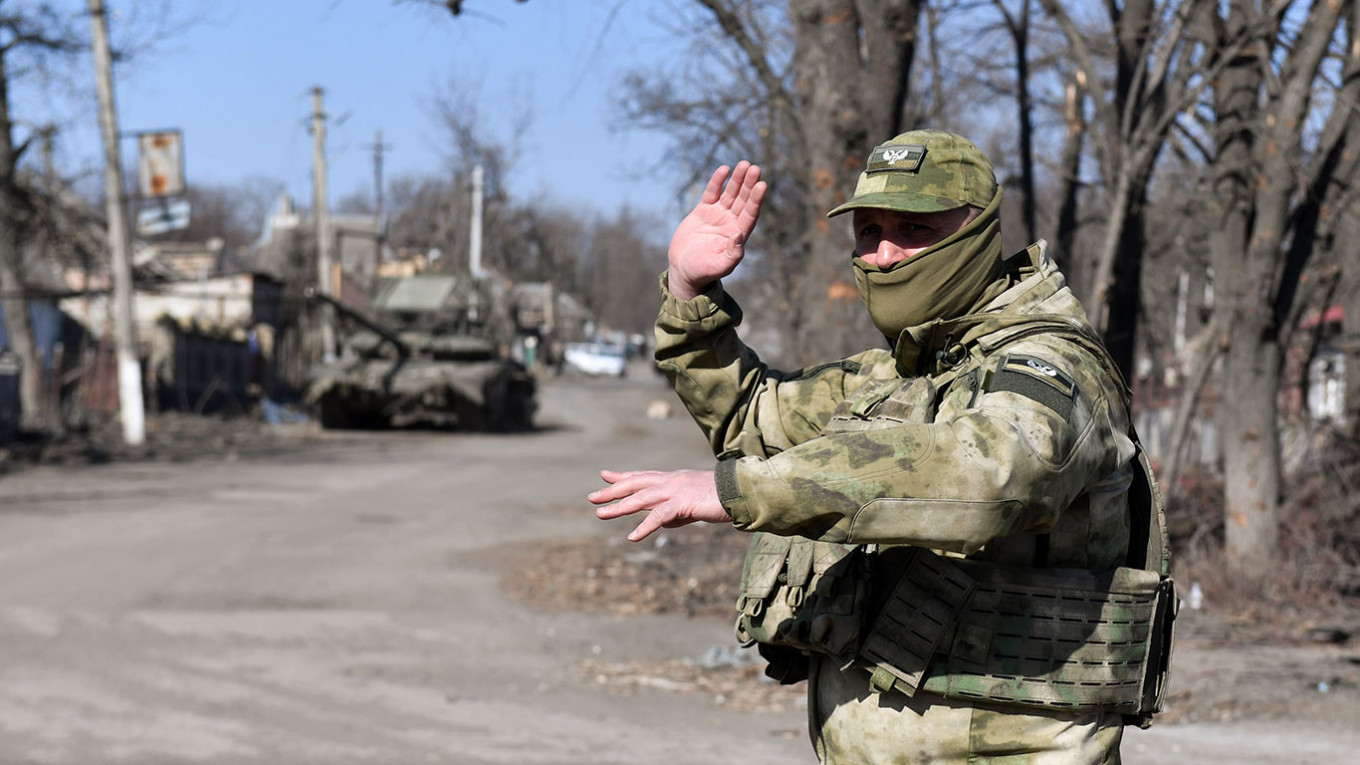“The real skill is to spot the signs beforehand and make sure you don’t push your men into doing something dangerous.” He paused. “Dangerous to you.”
As more accounts are emerging from Ukraine of Russian soldiers committing crimes, refusing orders, even defecting, I recalled that observation from an afganets, a veteran of the Soviet Union’s nasty ten-year war in Afghanistan. It was 1990, during the U.S.S.R.’s accelerating decline into dissolution, and I was in Moscow carrying out research on the war for my Ph.D.
Through the grapevine, I had got to meet Semyon, an infantry major who had been invalided out after a sniper shot his leg from under him in 1987. He was angry, bitter, and willing to spill the beans on the real art of commanding a company in a war that by then everyone knew they were going to lose, against an enemy they hated, feared and respected in equal measure.
After all, an officer who fell afoul of his own men could find himself in a very dangerous spot in battle, when the bullets were flying and no one could be sure quite where a shot had come from. Less fatally, especially for detached units like Semyon’s, a commander could not simply rely on the chain of command, and getting the best out of his men also meant ensuring that they trusted him not to stand too much on ceremony, to be fair but also flexible, and also to be committed to getting as many of them home alive as possible.
So, yes, sometimes that meant turning a blind eye to certain crimes. “Looting, especially of food, that was fine. Men have to eat, and you can’t live off army rations and kasha for ever” — even the ubiquitous buckwheat porridge can pall. “But you don’t take everything the locals have or else they’ll come after you with everything they have — it’s just common sense.”
“The same with rape or murder. It’s not just that it’s wrong, it makes the locals angry, and divides the unit. So you come down hard on that, and the men will respect that when they know why you’re doing it, and you’ve managed to show them you’re on their side.”
But the realities of field command also meant being willing to break the chain of command yourself when the orders crackling over the radio sound senseless or suicidal.
“Sometimes you make sure you misunderstand, so that a patrol into dangerous ‘greens’ (rebel-held rough terrain) ordered for 7 p.m., when it’s getting dark, for example, is actually carried out at 7 a.m., when it’ll be a lot safer. But sometimes it also means sabotage.”
The example he gave was deliberately blocking a tight mountain route by jamming a personnel carrier into it, so as to stymie an advance into hills notorious for rebel ambushes. It got Semyon a reprimand for carelessness from his colonel, but the respect of his men.
I find myself wondering how many Russian officers in Ukraine are having to learn these lessons.
The obvious failures in discipline — the indiscriminate looting, the violence, the rapes — tend to reflect soldiers who are not only hungry, but angry and out of control. Feeling abandoned by their commanders, stranded in hostile territory, they respond in such bestial ways in part precisely out of frustration, fear and a desire to assert some control over their surroundings.
It is by no means unique to Russian armies, but the relative absence of a cadre of professional NCOs (non-commissioned officers), traditions of violent hazing within the ranks and the poor relationships between officers and men in many units all contribute to this scourge.
Although the much-publicised case of a soldier driving his tank over his commander’s legs is more likely to be accident than mutiny, there is chatter in military and National Guard social media of the ‘fragging’ of unpopular officers in action.
Others are no doubt, like Semyon, tacitly siding with their own men, whether out of fear or solidarity, turning a blind eye when fuel tanks are emptied to forestall their being sent on the advance, or finding creative ways to misinterpret orders to minimise the dangers they face.
It is not as if this prevents the Russian army from being able to fight, sometimes very well. Semyon himself received the Medal for Combat Merit, and some units in Ukraine have demonstrated great determination.
Rather, it can be symptomatic of an army that already suspects it has lost. In his words, “by the time I was lifted out of afgan, it was all about survival, not victory.”
A Message from The Moscow Times:
Dear readers,
We are facing unprecedented challenges. Russia's Prosecutor General's Office has designated The Moscow Times as an "undesirable" organization, criminalizing our work and putting our staff at risk of prosecution. This follows our earlier unjust labeling as a "foreign agent."
These actions are direct attempts to silence independent journalism in Russia. The authorities claim our work "discredits the decisions of the Russian leadership." We see things differently: we strive to provide accurate, unbiased reporting on Russia.
We, the journalists of The Moscow Times, refuse to be silenced. But to continue our work, we need your help.
Your support, no matter how small, makes a world of difference. If you can, please support us monthly starting from just $2. It's quick to set up, and every contribution makes a significant impact.
By supporting The Moscow Times, you're defending open, independent journalism in the face of repression. Thank you for standing with us.
Remind me later.








